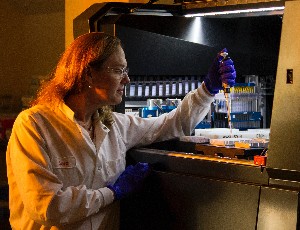What is the Certificate in Science and Policy?
The Certificate in Science and Policy is designed to provide students with foundational knowledge about the science-policy interface, and practical skills to analyze and communicate complex science policy and societal issues by bridging the worlds of science and policy.
It is jointly delivered between the Faculty of Science and the Faculty of Public Affairs. The Certificate consists of 5.0 undergraduate credits and is open to undergraduate students from all Faculties.
Quick Links
Requirements
Certificate in Science and Policy (5.0 credits)
May be taken following successful completion of a college diploma or equivalent or a university degree in any discipline with a minimum average grade of B. Can also be completed concurrently with any undergraduate degree after completing a minimum of 4.0 credits with a minimum CGPA of 7.0.
Admission to this program requires:
- Completion of at least 4.0 credits in any undergraduate degree program with a minimum of a CGPA of 7.0 or higher, or;
- Completion of a college diploma (or equivalent) or a university degree in any discipline with a minimum average grade of B.
| 1. 1.5 credits in: | 1.5 | |
| ISAP 2001 [0.5] | Foundations in Critical Inquiry | |
| PAPM 1001 [0.5] | Policy: Analysis, Implementation, and Evaluation | |
| PSCI 2003 [0.5] | Canadian Political Institutions | |
| 2. 0.5 credit in ISCI 1001 for students in a non-science program or any 1000-level Approved Science course for students in a science or engineering program | 0.5 | |
| 3. 1.5 credits in: | 1.5 | |
|
ISAP 3003 [0.5]
|
Science Communication | |
| ISAP 3004 [0.5] | Science Policy | |
| PADM 4220 [0.5] | Regulation and Public Policy | |
|
or LAWS 3005 [0.5]
|
Law and Regulation | |
| 4. 0.5 credit in: | 0.5 | |
| ISAP 3002 [0.5] | Applications in Interdisciplinary Research | |
| 5. 0.5 credit in Science Approved Electives for students in a non-science program or Public Affairs Approved Electives for students in a science or engineering program | 0.5 | |
| 6. 0.5 credit in Science or Public Affairs Approved Electives | 0.5 | |
| Total Credits | 5.0 | |
Approved Electives
Faculty of Public Affairs
Economics (ECON):
- FYSM 1003 Introduction to Economics;
- FYSM 1108 Sustainable Environments;
- FYSM 1908 One-Term Seminar in Economics;
- ECON 1001 Introduction to Microeconomics;
- ECON 1002 Introduction to Macroeconomics;
- ECON 3201 Economic Thought and Policy in Canada;
- ECON 3803 The Economics of Natural Resources;
- ECON 3403 Introduction to Public Economics: Expenditures;
- ECON 3460 Introduction to Health Economics;
- ECON 3805 Environmental Economics;
- ECON 3864 Transportation Economics;
- ECON 3860 Agricultural Economics;
Law (LAWS):
- LAWS 3005 Law and Regulation;
- LAWS 3502 Regulating Freedom of Expression in Canada;
- LAWS 3506 Administrative Law;
- LAWS 3508 Health Law;
- LAWS 3800 Law of Environmental Quality;
- LAWS 4510 Topics in Law, Policy and Government;
Political Management (POLM):
- POLM 3000 Introduction to Political Management;
- POLM 4010 Polling and Opinion Research;
- POLM 4012 Political Advocacy
Political Science (PSCI):
- PSCI 3401 Canadian Public Administration;
- PSCI 3402 Canadian Public Policy;
- PSCI 3405 Comparative Public Policy Analysis;
- PSCI 3406 Public Affairs and Media Strategies;
- PSCI 4400 Socio-Technical Change and Public Policy Design;
- PSCI 4407 Public Policy: Content and Creation;
- PSCI 4408 Public Affairs Management and Analysis
Public Policy and Administration (PADM):
- PADM 4220 Regulation and Public Policy;
- PADM 4221 Health Policy in Canada;
- PADM 4224 Aboriginal Policy;
Faculty of Science
Biology (BIOL):
- BIOL 1010 Biotechnology and Society;
- BIOL 4503 Fish Ecology, Conservation and Management;
- BIOL 4602 Evolutionary Applications across Disciplines: From Medicine to Conservation;
Earth Sciences (ERTH):
- ERTH 2402 Climate Change: An Earth Sciences Perspective;
- ERTH 4303 Finite Resources of the Earth;
Environmental Science (ENSC):
- ENSC 3106 Aquatic science and Management;
Food Science (FOOD):
- FOOD 2003 Regulation of the Canadian Food Industry;
- FOOD 4102 Current Issues in Canadian Food Governance, Regulation and Policy;
Health Sciences (HLTH):
- HLTH 3103 Health Policy and Canada’s Health Care System;
- HLTH 3104 Regulatory Issues and Human Health;
- HLTH 4101 Global Health Governance;
- HLTH 4102 New Health Technologies;
- HLTH 4202 Health Program Evaluation Tools and Methods; HLTH 4701 Knowledge Translation;
Physics (PHYS):
- PHYS 1901 Planetary Astronomy;
- PHYS 1902 From our Star to the Cosmos;
- PHYS 2903 Physics Towards the Future;
Technology, Society and Environmental Studies (TSES):
- TSES 2006 Ecology and Culture;
- TSES 3001 Technology-Society Interactions;
- TSES 3002 Energy and Sustainability;
- TSES 3500 Interactions in Industrial Society;
- TSES 4001 Technology and Society: Risk;
- TSES 4002 Technology and Society: Forecasting; TSES 4003 Technology and Society: Innovation;
- TSES 4005 Information Technology and Society;
- TSES 4006 Technology and Society: Work;
- TSES 4007 Product Life Cycle Analysis;
- PADM 4225 Trade Policy;
- PADM 4226 Tax Policy;
- PADM 4227 Education Policy;
- PADM 4228 Social Policy;
- PADM 4320 Ethics for Public Policy;
- PADM 4611 Science and Technology Policies;
- PADM 4612 Industrial Policy, Innovation and Sustainable Production;
- PADM 4615 Politics and Policy of Energy in Canada;
- PADM 4817 Health Policy in Developing Countries
Note: Other courses may be used with permission of the program.
Admission
May be taken following successful completion of a college diploma or equivalent or a university degree in any discipline with a minimum average grade of B. Can also be completed concurrently with any undergraduate degree after completing a minimum of 4.0 credits with a minimum CGPA of 7.0.
Admission to this program requires:
- Completion of at least 4.0 credits in any undergraduate degree program with a minimum of a CGPA of 7.0 or higher, or;
- Completion of a college diploma (or equivalent) or a university degree in any discipline with a minimum average grade of B.
Contact Us
For information about the certificate, please contact Admissions Services.


